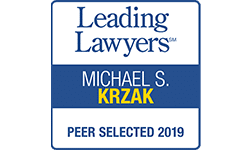Coronavirus: Healthcare Workers and First Responders in the Line of Fire

As the spread of COVID-19 continues to affect people on a global scale, we have to remember there are those that are putting their lives on the line every day to protect and care for others. For healthcare workers and first responders like paramedics, firemen, and police officers in the line of fire of the virus, there is the potential for these individuals to lose wages and time off of work, medical expenses, and other related losses if they get sick or injured due to new hazards that exist due to the virus.
It has yet to be seen how workers’ compensation cases will be handled when filing for contracting the coronavirus. We are closely monitoring the situation to determine how we can best serve clients during this difficult time. As just one example of a similar situation, today, the Chicago Tribune reported that a Chicago Police Officer contracted COVID-19 and passed away. The Tribute reported that officials are considering his death an on-duty death which would provide his family certain benefits they would otherwise not be entitled to. This ruling may provide some insight on how workers’ compensation claims may be handled.
Workplace Hazards and COVID-19
According to the National Center for Biotechnology Information (NCBI), pandemics appear to be increasing in frequency, particularly as a result of the frequent emergence of viral diseases from animals. Researches are still in the process of determining the origin of COVID-19 and how it has spread so quickly.
Essential employees in the medical field, paramedics, firemen and police officers are on the front lines as they’re treating and encountering infected patients and in areas where infected patients may be on a daily basis. The medical personnel are making those with grim outlooks comfortable, and helping families manage changes and losses. As a result, there are a number of unique workplace hazards healthcare workers are currently experiencing.
An ER doctor in Bellingham, Washington highlighted some of the hazards while working at PeaceHealth St. Joseph Medical Center. He discussed issues relating to the lack of protective measures being taken by the hospital, including insufficient safety equipment and inadequate testing procedures.
When hospitals fail to provide the necessary equipment and information healthcare workers need to protect themselves and help patients, it’s more likely for employees to become infected and are unable to continue working.
Employer Duty During a Pandemic
Hospitals, medical facilities, and other related businesses are responsible for ensuring their employees are protected from infection to the maximum extent possible. While this presents a challenge given how rampantly the coronavirus spreads, facilities are still required to take all necessary precautions as outlined by organizations like the Occupational Safety and Health Administration (OSHA) and the Centers for Disease Control and Prevention (CDC).
Unfortunately, some hospitals seem more concerned about protecting their image than ensuring their staff and physicians have the resources they need to care for patients and protect themselves from illness or injury.
Across the country, hospitals have been attempting to stop doctors, nurses, and other medical staff from voicing concerns and opinions regarding the virus and the steps hospitals are taking to mitigate risk. For example, an orthopedic surgeon, who works in a COVD-19 hotspot in the Northeast, discussed the condition of anonymity for fear of employer retribution. Employees receive daily warnings about being prudent about posts on social media. They are discouraged from discussing issues like case numbers, case severity, testing availability, and personal protective equipment (PPE).
Employers who neglect their legal responsibilities to their employees may be held accountable when injuries or illnesses develop as a result.
Infectious Diseases and Workers’ Compensation Eligibility
According to OSHA’s Guidance on Preparing Workplaces for COVID-19, healthcare delivery and support staff, medical transport workers, and mortuary workers are at a high exposure risk for contracting the virus. In hotspots like New York City, medical professionals are witnessing their colleagues succumbing to COVID-19. With personal protective equipment in short supply and the number of infected patients increasing daily, more doctors, nurses, and support staff are getting exposed to the virus.
Because OSHA has declared the coronavirus to be a recordable injury, this means that employers are required to notify the federal safety agency when a worker catches the disease at work. Currently, however, there is confusion surrounding how to go about proving the virus was contracted on the job.
While there is no precedent for a pandemic like this and how it will impact workers’ compensation eligibility, there is talk about essential employees being eligible for benefits because their risk of contracting the illness is higher than that of the general public.
Legal Claims for COVID-19 exposure.
The outbreak of COVID-19 has prompted workers’ compensation claims across the country. The success of those claims is based on individual circumstances, as compensability issues will play out on a case-by-case basis.
Currently, there’s no certainty that all health care providers and first responders will be able to obtain workers’ compensation coverage. However, with evidence of work-related exposure, it will be harder for employers to fight the claim. This is why it’s imperative that healthcare workers document everything they’re experiencing at work and every COVID-19 patient they come in contact with.
The first step to filing a claim will likely be confirming the diagnosis. This may be problematic with limited testing kits, but an official diagnosis will be needed to file a successful claim. It’s also important to collect a detailed history of job duties, including all interactions with COVID-19 patients.
For healthcare workers, compensable benefits may be available under either the Occupational Diseases Act or the Workers’ Compensation Act. If that’s the case, employers would be responsible for expenses related to factors like medical bills, temporary total disability, and permanent partial disability—to name a few.










